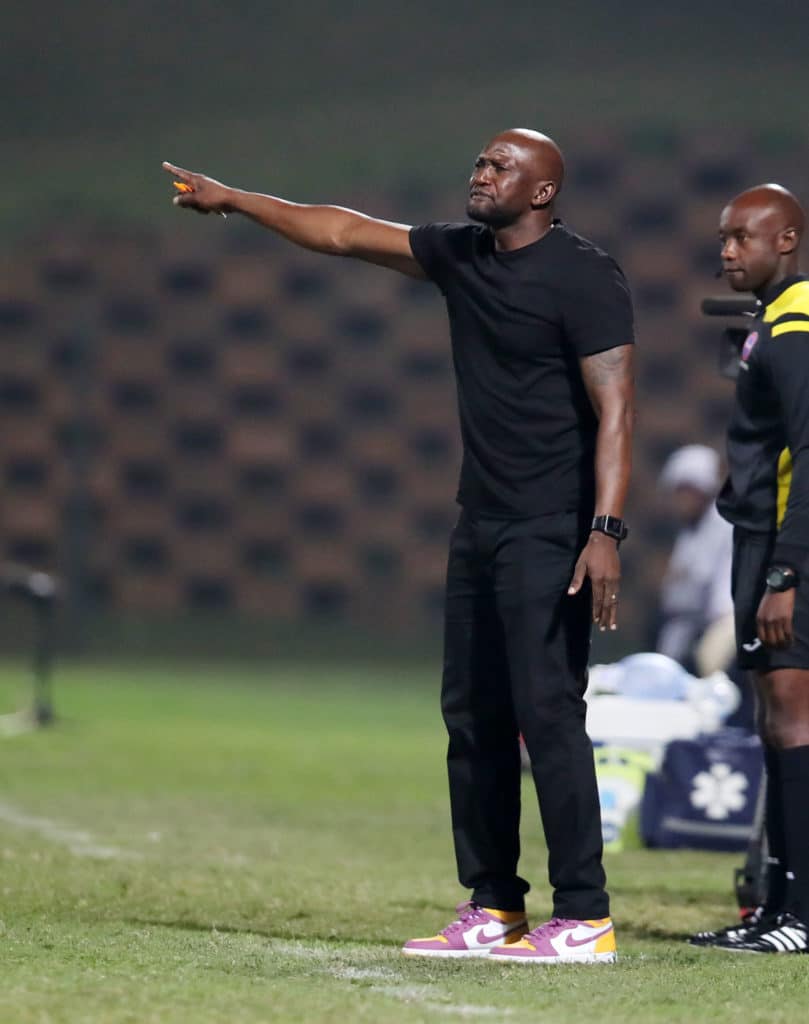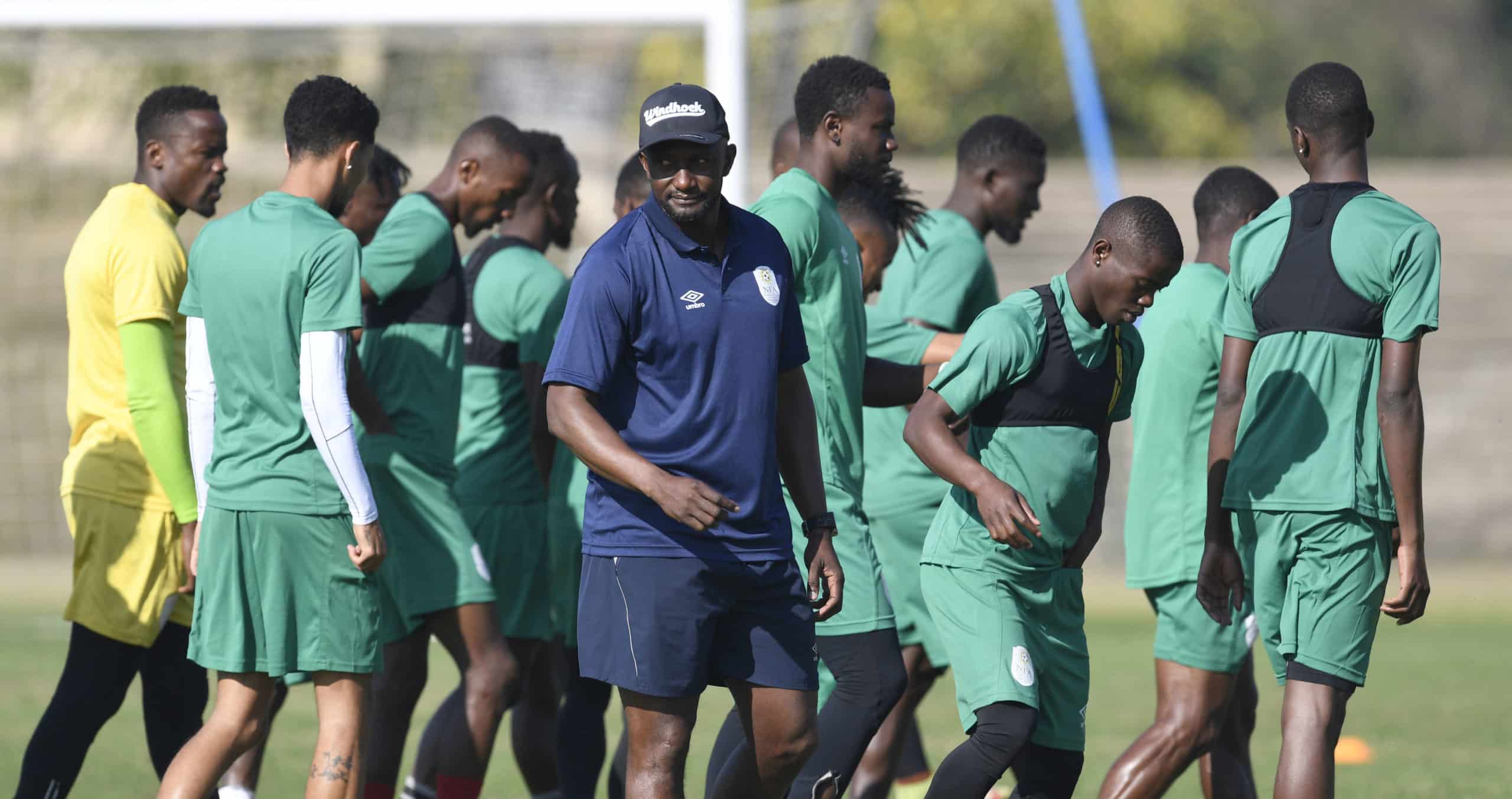Collin Benjamin was an unknown when he left his native Namibia in the 1990s, becoming one of the best African imports into the German league. Back in Windhoek, he wants to improve the professional football club landscape with the virtues learned from his Germany stint.
There have been thousands of African footballers who have left the continent to seek fame and fortune on the football fields of Europe, where the earnings can be eye- wateringly plentiful and international glory beckons.
The likes of Samuel Eto’o, Abedi Pele, Didier Drogba, Sadio Mane and Mohamed Salah have been turned into worldwide icons by their exploits and remain massive role models.
But the cycle of moving overseas to play and then returning home to share the knowledge and expertise gained has been largely limited, making it always heartening when this is competed.
One such example is Collin Benjamin, who was an unknown when he left his native Namibia in the 1990s to try his luck in Germany.
Loading...

There have always been close footballing contacts between the southern African country and its former colonizer and the contacts helped Benjamin find a club in the semi-professional ranks. There is little glamor there but players head in that direction in the hope it proves a springboard.
This is what happened to Benjamin, who went on to spend a decade playing in the Bundesliga and became one of the best African imports into the German league.
After his career at Hamburger SV and 1860 Munich, he worked as a junior coach in Germany before deciding to go home to Windhoek.
Since then, he has worked his way through the coaching ranks with Namibia’s junior teams and on to the senior side, when he qualified for this year’s Africa Cup of Nations.
It was only the fourth time Namibia reached the finals, and in the Ivory Coast, they set new standards, winning for a first time and also qualifying for the knockout phase – something they had not done before.
Benjamin felt the urge to return home, knowing his experience could be a force for good.
“Namibia is my country that gave me the chance to become a footballer. I returned to Windhoek in 2016 because I wanted to give something back to the country with my academy after my almost 20 years in Germany,” he explains to FORBES AFRICA.
“The fact that we were now able to give something back with the achievements at the Cup of Nations finals and that I can do this job makes me very happy and grateful.” Benjamin has had to deal with limited facilities, much changed from his time in Germany with their abundant resources.
Namibia’s small population also means a restricted pool of talent to choose from plus the country’s administrators have been reportedly fighting each other over the last decade, leaving the professional club landscape in tatters.
Benjamin says, however, that there was a fire burning within all his players, just as there was with him when he was starting out.
“You know, less talent, more work, and just the hunger. They all want to get out of Namibia and have an opportunity to play outside in another country.”
That spurred Namibia to a successful tournament in the Ivory Coast, including an upset win over Tunisia, who were at the last World Cup finals in Qatar.
“Basically, it was that hunger, wanting to succeed, knowing that clubs elsewhere cannot see them at home. The only platform they have to make a name for themselves is the national team.”
Benjamin has looked to harness that as best he can. “My approach is basically to look at what you have talentwise but also your personality. I’m of the opinion that I was not the best player, but I could make it and go and play in Germany just because of basic hunger and work ethic. I believe that you have to work if you want to achieve. I felt I had to get the team centered and create an ambition in them. They had to know that they should work towards something, and only through work you can achieve those goals. We had to become a lot fitter and play with more aggression and just learn to make things difficult for your opponent. So, it was basically just those principles. Those are kind of like my life principles that I’m just trying to instil in them.”
Moving from Germany has not proven easy because Namibia is hampered not only by a small pool of players but also a lack of facilities. Their two stadiums in Windhoek have both been ruled unfit for international matches by Confederation of African Football inspectors. Namibia have had to host their ‘home’ matches in South Africa.
“It’s not something that I’m going to hide, I do get frustrated. The whole parliament have been congratulating us, influential people, politicians, but we don’t need that. We want them to use their influence to at least have a stadium where we can play our matches, so that these players actually have something to dream about and people to cheer for them. If you want to compete on this continental stage, you need to win your home games and for us that’s not possible as long
as our stadiums are banned because they need to be upgraded.” But his job is still a thrill. “I don’t want hero status. For me it’s about something completely different. In Germany, with my easy nature, I was certainly seen by everyone as an African, and many of the boys in the team probably thought of me as ‘He’s not African, he’s European’. I am of course African. But I have internalized German virtues such as discipline, I try to mix and bring together the best of both cultures. So far, the combination has worked very well. I didn’t have a career plan before. My only goal was to further develop football in Namibia. And we’re not done yet,” warns Benjamin.
Loading...
